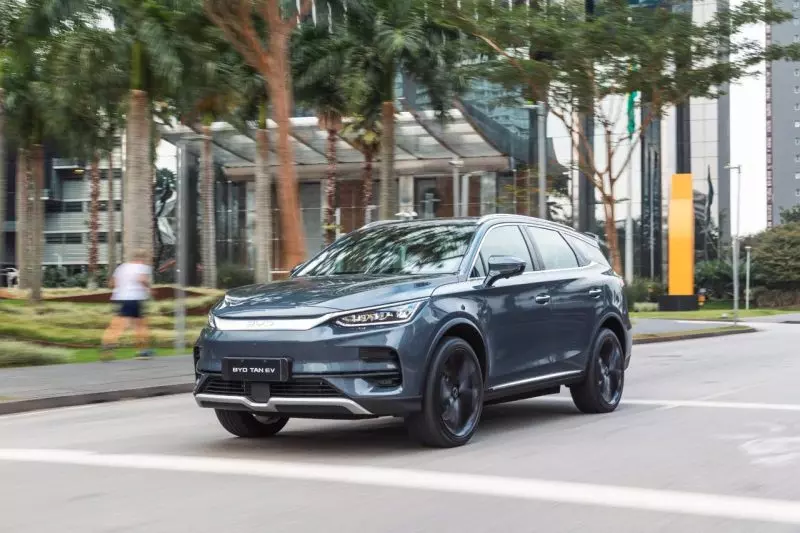In 2023, the automotive world is buzzing with change as electric vehicles (EVs) continue to gain traction, hybrids try to bridge the gap, and traditional gas cars face scrutiny. With the International Energy Agency reporting a 55% rise in EV sales this year alone, it’s clear that the way we drive is evolving rapidly. This article will delve into the efficiency and cost trends of EVs, hybrids, and gas cars, helping you make an informed decision on your next vehicle purchase.
The Rise of Electric Vehicles: Efficiency and Cost Advantages
Electric vehicles have become the poster child for sustainable driving. As their popularity surges, the efficiency of EVs continues to improve, making them a compelling choice for environmentally conscious consumers.
Efficiency of EVs
- Battery Technology: Advancements in battery technology, such as solid-state batteries, are pushing EV efficiency to new heights. According to Bloomberg Green, these batteries promise a 50% increase in energy density, translating to longer ranges and faster charging times.
-
Energy Consumption: EVs convert about 60% of the electrical energy from the grid to power at the wheels, compared to 20% for conventional gas vehicles. This makes EVs far more efficient in energy use.
-
Regenerative Braking: Unlike traditional cars, EVs often feature regenerative braking systems, which recover energy while slowing down, further enhancing efficiency.
Cost Considerations
-
Purchase Price and Incentives: While the initial cost of EVs might seem higher, governments worldwide, particularly in the US and Europe, offer substantial incentives and rebates. For instance, the US offers up to $7,500 in tax credits for EV buyers.
-
Maintenance and Fuel: EVs have fewer moving parts, which reduces maintenance costs significantly. Moreover, with electricity prices generally lower than gasoline, the cost per mile for EVs is substantially lower.
Hybrids: The Best of Both Worlds?
Hybrids combine the benefits of gasoline engines and electric motors, providing a middle ground for those not ready to fully commit to electric mobility.
Efficiency of Hybrids
- Fuel Economy: Hybrids are renowned for their excellent fuel economy. Models like the Toyota Prius average around 56 miles per gallon, making them a frugal choice for daily commuting.
-
Versatility: The dual-engine setup allows hybrids to switch between power sources seamlessly, maximizing efficiency based on driving conditions.
Cost Considerations
-
Affordability: Hybrids generally have a lower purchase price than EVs, especially when electric-only driving isn’t a priority. However, they are typically more expensive than traditional gas cars.
-
Operational Costs: While hybrids require gasoline, their efficient fuel consumption keeps operational costs competitive, especially in areas with high fuel prices.
Gasoline Cars: Are They Still Relevant?
Despite the shift toward greener options, gasoline cars remain dominant, primarily due to their established infrastructure and lower initial costs.
Efficiency of Gasoline Cars
- Engine Improvements: Advances in engine technology have improved the fuel efficiency of gasoline cars. Models like the Honda Civic can achieve up to 42 miles per gallon on highways.
-
Range and Refueling: Gas cars offer longer ranges and faster refueling times than most EVs, making them suitable for long-distance travel without the need for frequent stops.
Cost Considerations
-
Initial Cost: Gasoline cars typically have the lowest purchase price, making them accessible to a broader audience. However, rising fuel prices and maintenance costs can offset these savings over time.
-
Resale Value: With the market shifting towards greener vehicles, the resale value of gasoline cars may decline, affecting long-term cost-effectiveness.
Practical Tips for Choosing Your Next Vehicle
Choosing between EVs, hybrids, and gas cars depends on several factors, including driving habits, budget, and environmental concerns. Here are some tips to guide your decision:
- Analyze Driving Patterns: If your daily commute is short, an EV might be perfect. For longer commutes, consider a hybrid or a fuel-efficient gas car.
-
Consider Total Cost of Ownership: Evaluate not just the purchase price but also maintenance, fuel, and potential incentives.
-
Charging Infrastructure: Look into the availability of charging stations in your area. Countries like Norway and the Netherlands have robust EV infrastructure, making EVs more practical.
-
Environmental Impact: Consider your carbon footprint. EVs and hybrids offer reduced emissions, contributing to cleaner air and a healthier planet.
Conclusion: The Future of Driving
As 2023 unfolds, the automotive landscape is more dynamic than ever. Electric vehicles are setting new benchmarks in efficiency and cost-effectiveness, hybrids provide a balanced approach, and gasoline cars, while still relevant, face increased pressure to adapt. Your choice should reflect personal priorities—whether it’s cutting-edge technology, affordability, or environmental impact.
So, which road will you take in 2023? Share your thoughts in the comments below and join the conversation about the future of driving. The next few years promise exciting developments as technology and sustainability converge to redefine our roads.

